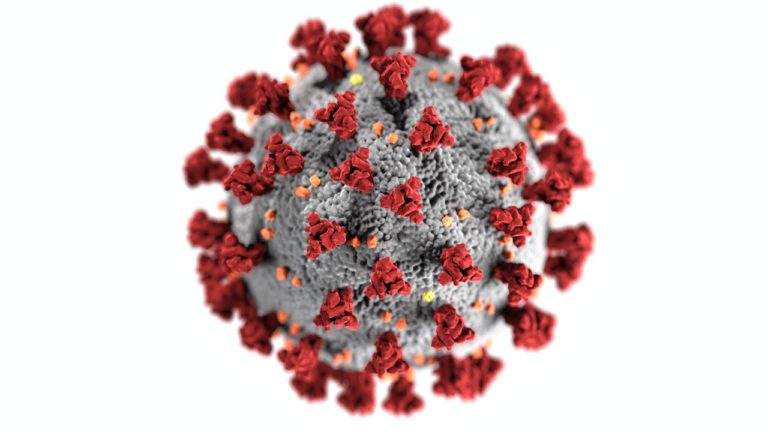
Hey there! If you’re reading this, chances are you’re interested in getting tested for herpes, but maybe you’re not sure where to start. Well, you’ve come to the right place! As experts in at-home testing, the team at Speedy Sticks is here to provide you with everything you need to know about herpes testing in the comfort of your own home.
Herpes is a common sexually transmitted infection that can be difficult to detect without proper testing. But the good news is, there are now several at-home herpes testing options available that make it easier than ever to get tested discreetly and conveniently. In this blog post, we’ll cover everything you need to know about at-home herpes testing, from the types of tests available to how to interpret your results.
What is Herpes and How is it Transmitted?
Herpes is a common sexually transmitted infection caused by the herpes simplex virus (HSV). There are two types of HSV: HSV-1 and HSV-2. While HSV-1 is typically associated with oral herpes, and HSV-2 is associated with genital herpes, either type can infect the mouth or genitals.
Herpes is highly contagious and can be transmitted through skin-to-skin contact, including sexual contact. This means that it can be spread through vaginal, anal, and oral sex, as well as through kissing and other forms of intimate contact.
It’s important to note that herpes can be transmitted even when there are no visible symptoms, such as sores or blisters. This is known as asymptomatic shedding, and it can make it difficult to know when you or your partner are at risk of transmitting the virus. That’s why it’s important to get tested for herpes regularly, especially if you are sexually active or have multiple partners.
Why Should You Get Tested for Herpes?
There are several reasons why someone might want to get tested for herpes. Firstly, as we mentioned earlier, herpes can be spread even when there are no visible symptoms. So, even if you or your partner are not experiencing any symptoms, you could still be infected and unknowingly transmitting the virus.
Additionally, herpes can be a lifelong infection that can cause uncomfortable symptoms and may increase the risk of other sexually transmitted infections (STIs) and complications, such as cervical cancer. Getting tested can help you identify the infection early on, allowing you to start treatment and reduce the risk of transmission and complications.
If you are experiencing symptoms such as painful blisters or sores in the genital or oral area, getting tested for herpes can help you confirm whether or not you have the virus and determine the best course of treatment.
Ultimately, getting tested for herpes can give you peace of mind and help you protect your sexual health and the health of your partner(s). At Speedy Sticks, we believe that everyone has the right to easy, affordable, and accessible testing, so don’t hesitate to get tested today!
What Types of Herpes Tests Are Available for Home Use?
There are two main types of herpes tests available for home use: blood tests and swab tests.
Blood tests, also known as serology tests, detect antibodies produced by the body in response to the herpes virus. These tests are typically used to detect a previous infection with the herpes virus, rather than an active infection. At Speedy Sticks, we offer an at-home phlebotomy visit where one of our trained professionals will come to your location to collect a blood sample. You can also search for “STI screening near me” to find a clinic that offers in-person blood tests.
Swab tests, also known as culture tests or polymerase chain reaction (PCR) tests, detect the presence of the herpes virus on the skin or mucous membranes. These tests are typically used to diagnose an active herpes infection. At-home swab tests are available, but it’s important to choose a test that has been validated and approved by the FDA or other regulatory agencies.
At Speedy Sticks, we offer reliable and accurate at-home herpes testing options, including a convenient at-home phlebotomy visit option for blood tests. We also provide guidance on how to interpret your results and what to do next if you test positive for herpes. If you prefer an in-person option, you can search for “STI screening near me” to find a clinic that offers herpes testing.
How Accurate Are At-Home Herpes Tests?
At-home herpes tests can be very accurate when used correctly and with a reliable test kit. However, it’s important to understand that no test is 100% accurate, and false negatives and false positives can occur with any type of test.
The accuracy of an at-home herpes test depends on several factors, including the type of test, the quality of the test kit, and how the test is performed. Blood tests are generally more reliable for detecting previous herpes infections, while swab tests are more reliable for detecting active herpes infections.
When choosing an at-home herpes test, it’s important to choose a test that has been validated and approved by the FDA or other regulatory agencies. At Speedy Sticks, we only offer herpes tests that have been thoroughly tested and approved for at-home use.
If you receive a positive result from an at-home herpes test, it’s important to confirm the result with a healthcare provider. Your provider may recommend additional testing or treatment options.
In summary, at-home herpes tests can be accurate when used correctly and with a reliable test kit. However, it’s important to understand the limitations of these tests and to confirm any positive results with a healthcare provider.
How Do You Interpret Your At-Home Herpes Test Results?
Interpreting your at-home herpes test results can be a bit tricky, especially if you’re not familiar with the terminology and test methods. Here are some general guidelines for interpreting your at-home herpes test results:
If you have a positive result from a blood test, it means that you have been exposed to the herpes virus at some point in the past. This does not necessarily mean that you have an active herpes infection, but it does mean that you should take precautions to avoid spreading the virus to others.
If you have a positive result from a swab test, it means that you have an active herpes infection. You should seek medical treatment and take precautions to avoid spreading the virus to others.
If you have a negative result from a blood test, it means that you have not been exposed to the herpes virus, or that the test was unable to detect the virus. However, false negative results can occur, so it’s important to confirm the result with a healthcare provider if you have symptoms or concerns.
If you have a negative result from a swab test, it means that the test did not detect the herpes virus on the skin or mucous membranes at the time of the test. However, false negative results can occur, especially if the test is not performed correctly or if the virus is present in low levels.
If you have any questions or concerns about your at-home herpes test results, it’s important to discuss them with a healthcare provider. They can provide more information about what the results mean and recommend any necessary follow-up testing or treatment.
How to Choose the Right At-Home Herpes Test for You?
Choosing the right at-home herpes test can be overwhelming, especially if you’re not familiar with the different types of tests and testing methods. Here are some factors to consider when choosing an at-home herpes test:
Type of test: There are two main types of at-home herpes tests – blood tests and swab tests. Blood tests detect herpes antibodies in the bloodstream, indicating exposure to the virus. Swab tests collect a sample of the affected area, such as a genital sore, to detect active herpes infections. Consider your personal preference and medical needs when choosing a test type.
Test accuracy: Look for an at-home herpes test that has a high level of accuracy, meaning it has been tested and validated by regulatory agencies and clinical studies. Check the test’s sensitivity and specificity rates, which indicate the percentage of true positive and negative results, respectively.
Test kit quality: Choose an at-home herpes test kit that is easy to use and includes clear instructions. The test kit should also include all necessary materials for testing, such as lancets, swabs, and collection tubes.
Price and insurance coverage: At-home herpes tests can vary in price, so compare different brands and options to find a test that fits your budget. Some insurance plans may cover the cost of at-home herpes tests, so check with your provider before making a purchase.
Confidentiality and privacy: Consider the level of confidentiality and privacy that the at-home herpes test offers. Look for a test that uses a secure and confidential online platform for test results and offers discreet packaging for shipping.
At Speedy Sticks, we offer a variety of at-home herpes tests that have been thoroughly tested and validated for accuracy and reliability. Our tests use the latest technology and methods to provide fast and accurate results, and our team is available to answer any questions or concerns you may have.
What Are the Benefits of At-Home Herpes Testing?
At-home herpes testing offers several benefits over traditional in-person testing methods. Here are some of the key benefits of at-home herpes testing:
Convenience: With at-home herpes testing, you can test for herpes from the comfort of your own home, without having to make a trip to a healthcare provider’s office or lab. This can save time and reduce the hassle of scheduling appointments and traveling.
Privacy: At-home herpes testing offers a high level of privacy, allowing you to test for herpes discreetly and confidentially. This can be especially important for individuals who may feel embarrassed or uncomfortable discussing herpes with a healthcare provider.
Accuracy: At-home herpes tests are highly accurate and reliable, using the latest technology and testing methods to provide fast and accurate results. This can provide peace of mind and help you make informed decisions about your sexual health.
Cost: At-home herpes testing can be more cost-effective than traditional in-person testing methods, with many tests available at a lower cost and some insurance plans covering the cost of at-home tests.
Access: At-home herpes testing can be a valuable option for individuals who may have limited access to healthcare providers or testing facilities, such as those living in rural or remote areas.
Overall, at-home herpes testing offers a convenient, private, and accurate way to test for herpes and monitor your sexual health. At Speedy Sticks, we are committed to providing high-quality at-home herpes tests that are easy to use and provide fast, reliable results.
How to Order an At-Home Herpes Test from Speedy Sticks?
Ordering an at-home herpes test is easy and convenient. Here are a few steps to follow:
Choose a reputable provider: When selecting an at-home herpes test, it is important to choose a provider that offers high-quality testing and support. Look for a provider with a good reputation and positive customer reviews.
Select the right test: There are several different types of at-home herpes tests available, so it is important to choose the one that is right for you. Consider factors such as cost, accuracy, and ease of use when selecting a test.
Place your order: Once you have chosen a provider and test, you can place your order online or over the phone. Many providers offer fast and discreet shipping, so you can receive your test kit quickly and easily.
Collect your sample: Follow the instructions provided with your at-home herpes test kit to collect your sample. Depending on the test you choose, this may involve collecting a blood sample or a swab of the affected area.
Interpret your results: Once you have collected your sample and sent it back to the provider for testing, you will receive your results within a few days. It is important to carefully read and interpret your results, and seek counseling or support if you have any questions or concerns.
Another option for ordering an at-home STI screening is to book a telehealth consultation with a healthcare provider through Speedy Sticks. This service is available nationwide and allows you to speak with a licensed healthcare provider who can order an at-home STI screening for you. This can provide you with the additional support and guidance you need to make informed decisions about your sexual health.
Frequently Asked Questions about At-Home Herpes Testing
Is at-home herpes testing as accurate as testing done in a healthcare setting?
Yes, many at-home herpes tests are just as accurate as those done in a healthcare setting. However, it is important to choose a reputable provider and carefully follow the instructions provided with your test kit to ensure accurate results.
Can I use an at-home herpes test to diagnose genital herpes?
While at-home herpes tests can detect the presence of the herpes virus in your body, they are not intended to diagnose genital herpes. If you think you may have genital herpes, it is important to speak with a healthcare provider and undergo a physical examination and laboratory testing.
How long does it take to receive my results from an at-home herpes test?
The time it takes to receive your results from an at-home herpes test can vary depending on the provider you choose. Many providers offer fast turnaround times and can provide results within a few days of receiving your sample.
Can I order an at-home herpes test if I don’t have any symptoms?
Yes, you can order an at-home herpes test even if you don’t have any symptoms. Many people with herpes are asymptomatic, meaning they do not experience any symptoms, so testing can be an important way to detect the virus.
How much does an at-home herpes test cost?
The cost of an at-home herpes test can vary depending on the provider you choose and the type of test you order. Prices can range from around $20 to $150 or more. However, many insurance plans cover the cost of STI testing, so it is important to check with your provider to see if your test may be covered.







